In the journey of life, the early years play a crucial role in shaping the foundation of a child’s future. Early education, often overlooked, is a powerful force that molds young minds and sets the stage for lifelong learning. It’s not just about ABCs and 123s; it’s about fostering curiosity, building social skills, and igniting a love for exploration. These initial years are like the first strokes on a canvas, laying the groundwork for a masterpiece. Join me in unraveling the significance of early education, where the seeds of knowledge are sown, and the roots of a fulfilling life take hold.
Table of contents
- Developing Core Life Skills
- Financial Literacy
- Health and Wellbeing
- Personal Responsibility
- Creativity and Imagination
- Digital Literacy
- Cultural Awareness
- Safety and Emergency Preparedness
- Goal Setting and Achievement
- Conflict Resolution
- Media Literacy
- Mindfulness and Stress Management
- Conclusion
- Frequently Asked Questions
Developing Core Life Skills
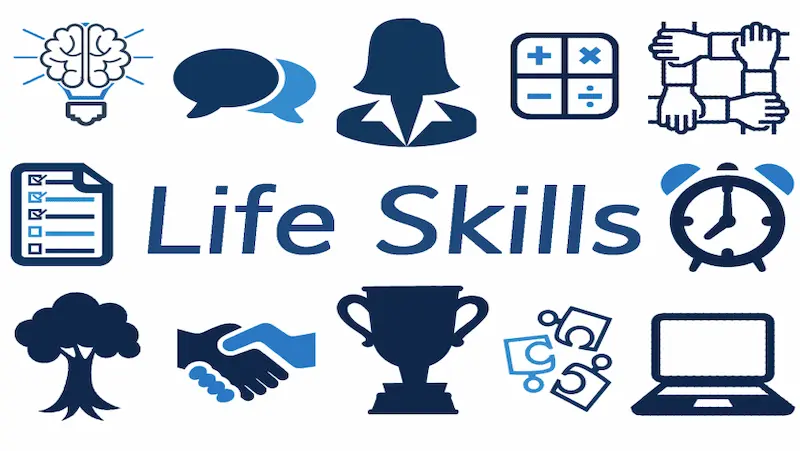
Emotional Intelligence
Understanding your feelings and those of others is like having a secret manual for navigating life. Emotional intelligence, or EQ, isn’t about being a superhero with zero emotions; it’s about knowing them well and using that knowledge to make better choices.
Imagine you’re a wizard with a magical wand that helps you handle tough situations. That wand is your emotional intelligence. It helps you express yourself without causing a hurricane and understand why your friend might be acting like a grumpy dragon.
Communication Skills
Ever played the whisper game? It’s where you pass a message down a line, and by the end, it’s totally different. Good communication is like being a champ at the whisper game. It’s not just about talking; it’s about making sure your message stays true and clear.
Think of communication as a friendly game of catch. You throw your words, and the other person catches the meaning. Clear, honest, and respectful communication is the glue that keeps relationships strong.
Critical Thinking and Problem-Solving
Imagine your brain is a superhero cape that helps you tackle puzzles and challenges. That’s critical thinking. It’s not about being the smartest person in the room; it’s about asking questions, looking at things from different angles, and finding solutions like a superhero on a quest.
Financial Literacy
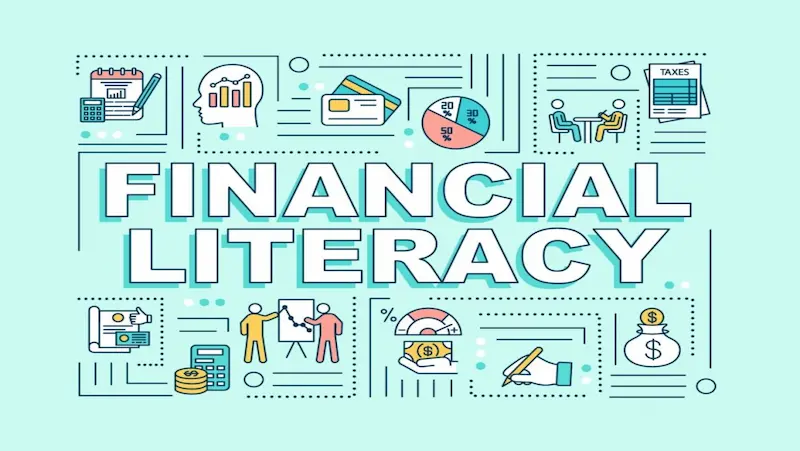
The Importance of Money Management:
In the grand dance of life, teaching kids about money plays a leading role. Imagine it as the conductor orchestrating the harmony of your everyday existence. But, like any art form, managing money requires skill and finesse. This is where financial literacy steps in – understanding how to conduct this orchestra of income and expenses.
It’s not about making your wallet bulge with cash but ensuring that every note in your financial symphony is well played. From budgeting to saving for rainy days, activities for financial literacy teach you the language of money. It’s not about the amount you have; it’s about how wisely you use it.
Teaching Kids About Earning and Saving:
Just like a good story, the lesson of earning and saving starts early. Picture this: a child, excitedly receiving pocket money management for kids for the first time. It’s not just about getting a shiny coin; it’s about the joy of learning. Earning teaches the connection between effort and reward, a vital lesson in the real world.
But, here’s the plot twist – the story isn’t just about spending every penny as soon as it lands in those tiny palms. Introducing the concept of saving early on is like planting a seed. It may start small, but over time, it grows into a sturdy tree providing shade during the financial heatwaves of adulthood.
Health and Wellbeing

Nutrition and Healthy Eating Habits
Taking care of your body begins with what you put into it. Imagine your body as a car – it needs the right fuel to run smoothly. Similarly, our bodies need the right kind of food to function at their best.
Healthy eating isn’t about strict diets or giving up your favorite snacks; it’s about making smart choices that nourish your body. Try to include a variety of fruits, vegetables, whole grains, and proteins in your meals. Don’t forget to drink plenty of water – it’s like giving your body a refreshing shower from the inside!
Physical Activity and Exercise
Just like a car needs regular maintenance, our bodies need regular movement. Exercise isn’t just about sweating in a gym; it can be as simple as playing your favorite sport, going for a walk, or dancing to your favorite tunes.
Physical activity helps keep your heart healthy, your muscles strong, and your mind sharp. It’s not just good for your body; it’s great for your mood too! So, find something you enjoy and make it a habit. Your body will thank you for it, and you’ll feel more energized and ready to take on the day!
Personal Responsibility

Chores and Responsibilities at Home
Let’s talk chores. You know, the stuff that makes parents smile and kids roll their eyes. Chores aren’t just about keeping a tidy house; they’re like training wheels for life. They teach teamwork, discipline, and a sprinkle of that magical word – responsibility. From making their beds to feeding the family pet, these tasks are little life lessons wrapped in daily routines.
So, parents, don’t just assign chores; make them a shared responsibility. It’s a hands-on, interactive guide to the grown-up world. Plus, it might mean a few less sticky fingerprints on your windows.
Time Management
Ah, time – that elusive friend we’re always chasing. Teaching kids the art of time management is like giving them a superpower. From school assignments to playdates, understanding how to slice and dice time is crucial.
Start with a visual aid. Maybe a colorful calendar or a simple to-do list. Help them prioritize tasks, understand deadlines, and learn that even playtime needs its own slot. These skills aren’t just handy for school; they’re the secret sauce for a balanced, stress-free life.
Creativity and Imagination

Play: The Gateway to Creativity
Remember those moments of carefree play as a child, when a simple cardboard box became a spaceship and a bedsheet transformed into a royal cape? Encouraging creativity through play is not just reserved for the young; it’s a timeless adventure for everyone.
Play is the language of imagination. Whether it’s doodling on a notepad, sculpting with clay, or even daydreaming, these activities spark creativity. Set aside time to play without rules or expectations. Let your mind wander, explore, and embrace the joy of unstructured play. Who knows what fantastic ideas might emerge from the playground of your imagination?
Art and Innovation: Where Ideas Take Flight
Art is more than just pretty pictures; it’s a gateway to expression and innovation. Fostering a love for art opens the door to a world of possibilities. Whether it’s drawing, painting, music, or dance, creative outlets allow us to communicate in ways words sometimes cannot.
Innovation thrives in the soil of imagination. Encourage yourself and others to explore new ideas, ask ‘what if’ questions, and challenge the norm. It’s not about being a Picasso or an Einstein—it’s about discovering your unique way of thinking and expressing.
Digital Literacy

Safe Internet Usage:
Think of the internet as a bustling city filled with information highways. Just as we look both ways before crossing the street, it’s essential to navigate the web safely. Use strong passwords like you would lock your front door. Be cautious about the information you share, and be skeptical of unexpected digital visitors (spam and phishing).
Remember, not everything on the internet is as it seems. Be a smart explorer – double-check information, and if a website looks a bit fishy, it might be!
Cyberbullying Awareness:
Just as we treat others with kindness in the playground, the same rule applies online. Cyberbullying is like the schoolyard bully but in digital form. It can hurt, and it’s never okay.
If you see someone being treated unfairly online, be a hero – report it. Always think before you type, and remember that your words have power. Cyberbullying has no place in our digital community.
Cultural Awareness
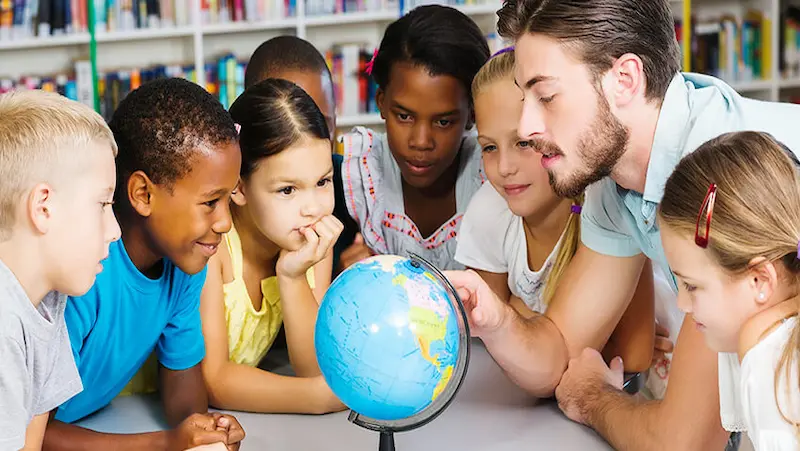
Appreciating Different Cultures and Traditions
Imagine a world where everyone dressed the same, ate the same food, and celebrated the same holidays. Sounds a bit dull, doesn’t it? Appreciating different cultures is like opening a treasure chest filled with unique customs, delicious cuisines, and vibrant festivals. It’s about understanding that what might seem strange to us is someone else’s normal, and that’s perfectly okay.
Take a moment to explore the tapestry of traditions woven by people from various backgrounds. Attend multicultural events, try different foods, and engage in conversations with people from diverse cultural backgrounds. It’s like embarking on a thrilling journey without leaving your own backyard.
Teaching Tolerance and Inclusivity
Picture a world where everyone felt included, respected, and valued. That’s the kind of world we should strive to create, and it starts with teaching tolerance and inclusivity. It’s about recognizing that every person is a unique brushstroke in the painting of humanity.
Encourage open conversations about differences. Help children understand that our dissimilarities make the world more interesting, just like a patchwork quilt made up of different fabrics. Teach them that kindness and acceptance are the glue that holds this quilt together.
Safety and Emergency Preparedness
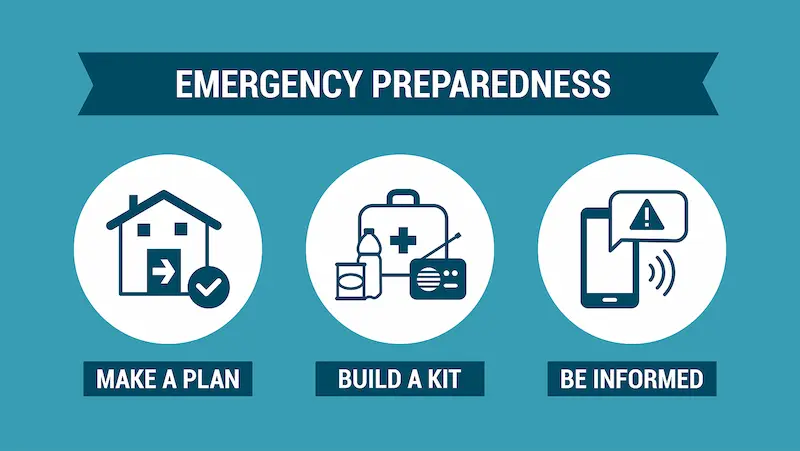
Fire Safety:
Fire safety isn’t just about stop, drop, and roll. It’s about understanding the potential risks and taking steps to prevent fires at home. Simple things like not overloading electrical sockets and having a family fire escape plan can make a huge difference. Teach kids about the importance of not playing with matches and the role of smoke alarms in keeping us safe. Remember, a little caution goes a long way when it comes to fire safety.
Stranger Danger and Personal Safety:
Talking to kids about stranger danger doesn’t have to be scary; it’s about empowering them to make smart choices. Encourage open communication so they feel comfortable sharing their concerns. Teach them that it’s okay to say “no” to an adult if they feel uncomfortable and emphasize the importance of staying in groups when outside.
Personal safety is like having a superpower – knowing when something doesn’t feel right and having the confidence to act on it.
Goal Setting and Achievement

Setting and Tracking Personal Goals
Setting goals is like planning a road trip—you need a destination to map out your journey. Think about what you want to achieve, whether it’s learning experience a new skill, finishing a book, or improving a hobby. Keep it simple and specific.
Let’s break it down:
1. Start Small: Begin with achievable goals. Want to read more? Aim for one book a month. Dreaming of fitness? Start with a short daily walk. Small steps make big dreams more manageable.
2. Be Specific: Instead of saying, “I want to exercise more,” say, “I’ll go for a 15-minute walk every morning.” Specific goals give you a clear path.
3. Write It Down: Putting your goals on paper makes them real. Use a journal or a note on your phone—whatever works for you. It’s like having a personal coach cheering you on.
Celebrating Achievements
When you reach a milestone, no matter how small, celebrate it! Celebrations aren’t just for big victories; they’re for every step forward. Here’s how:
1. Acknowledge Success: Pause and recognize your achievement. Whether it’s finishing a chapter or sticking to your morning routine, give yourself credit.
2. Treat Yourself: Treats don’t have to be extravagant. It could be a favorite snack, a relaxing evening, or a movie night. Rewards make your efforts feel worthwhile.
3. Share Your Wins: Tell a friend or family member about your success. Sharing creates a positive cycle of encouragement and support.
Conflict Resolution
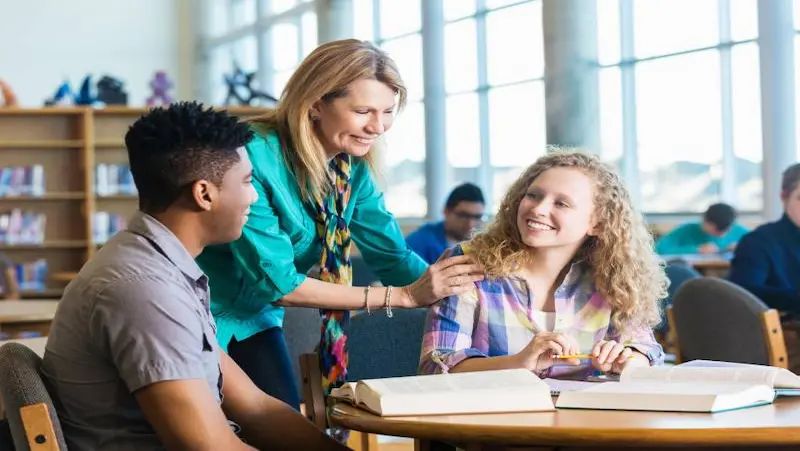
Mastering Healthy Conflict Resolution
Imagine conflict as a tricky maze where emotions are the walls. Navigating this maze requires the superpower of healthy conflict resolution. Start by embracing open communication. Express feelings honestly, and be an attentive listener. Remember, compromise is not a defeat; it’s a bridge to understanding.
Standing Strong Against Bullying
Bullying is the villain we all wish to banish. Arm your children with the shield of self-respect and empathy. Encourage them to speak up against bullying and seek help when needed. By fostering a culture of kindness and inclusion, we create a world where every hero, big or small, is celebrated.
Media Literacy

Critical Evaluation of Media Content
Imagine media content as ingredients for a recipe. Not everything blends well, and some flavors might not suit your taste. Similarly, not all information is created equal. Train your brain to question what you see, hear, and read. Is the source reliable? Are different perspectives considered? Just like tasting a dish, sample a variety of sources to develop a well-rounded understanding.
Avoiding Media Manipulation
Ever felt like the media is playing puppet master with your emotions? It happens. Advertisers and influencers are skilled in pulling strings, trying to shape opinions or sell products. Be media-savvy! Recognize when you’re being led down a particular path. Fact-check, question motives, and don’t be afraid to step back from the puppet show. Your independent thinking is your best defense against manipulation.
Mindfulness and Stress Management
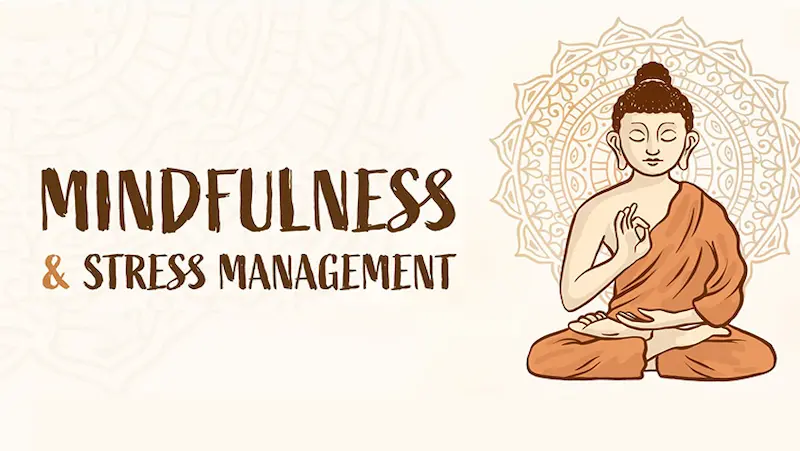
Techniques for Stress Reduction
Ever tried taking a deep breath when things get overwhelming? It’s not just a cliché; it actually works! Simple techniques like deep breathing, meditation, or even a short walk can do wonders to calm the storm inside. Find what suits you best and make it a go-to when stress comes knocking.
Promoting Mental Wellbeing
Just as we take care of our bodies, it’s equally important to nurture our minds. Engage in activities for kids that bring you joy, be it reading a book, spending time with loved ones, or pursuing a hobby. It’s about finding that mental reset button and pressing it regularly.
Life can be a rollercoaster, and stress is an unavoidable part of the ride. However, by incorporating mindfulness activities for kids into our daily routine, we equip ourselves with the tools to navigate the twists and turns with a sense of calm.
Conclusion
In conclusion, as we guide our kids toward a bright future, it’s clear that developing core life skills is key. From understanding and managing emotions to effective communication and critical thinking, these skills lay the foundation for success in all areas of life. Financial literacy equips them with the tools to navigate the complexities of money, teaching them the value of earning and saving from an early age.
To get your hands on more such articles, educational content, and free resources on coding for kids, robotics courses, game development, etc., check out the BrightCHAMPS Blog Page now!
Frequently Asked Questions
A1. It’s never too early to begin. Simple tasks and conversations about emotions, sharing, and responsibilities can start as early as preschool age. As they grow, you can gradually introduce more complex skills.
A2. At a young age, focus on emotional intelligence, basic communication, sharing, and respect. As they progress, introduce critical thinking, financial literacy, and personal responsibility.
A3. Make it practical and relatable. Use everyday situations to explain concepts like saving, spending wisely, and the value of money. Consider games, and piggy banks, and involve them in simple budgeting.
A4. Absolutely. A collaborative effort between home and school creates a more comprehensive learning environment. Schools play a vital role in reinforcing and expanding life skills taught at home.
A5. Incorporate games, storybooks, and age-appropriate activities. Online platforms often offer interactive tools and educational games focused on emotional intelligence, financial literacy, and other essential skills.


 We are an army of educators and passionate learners from BrightChamps family, committed to providing free learning resources to kids, parents & students.
We are an army of educators and passionate learners from BrightChamps family, committed to providing free learning resources to kids, parents & students.














